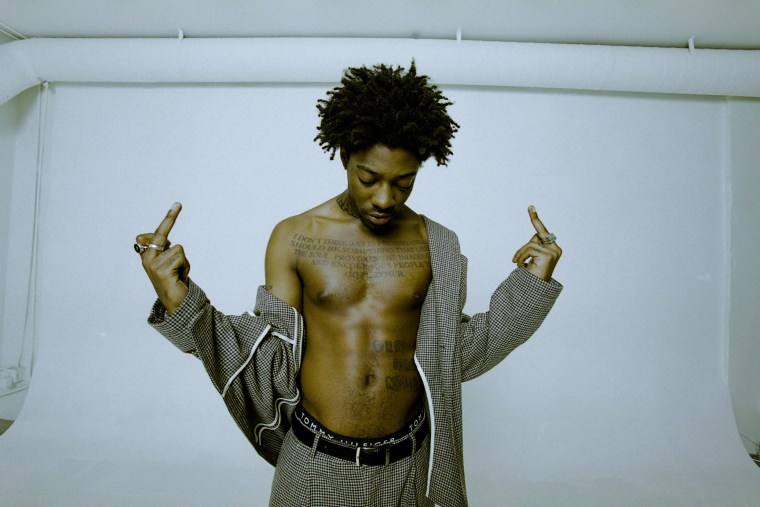“He was… my soul mate, my best friend… We chose each other, I loved him… But how do you prove that? There isn’t any proof…“,
…reads one of the many brilliant lines in Justine Triet’s Anatomy of A Fall that won her the Oscar for Best Original Screenplay just last weekend. With an exhilaratingly naturalistic performance by Sandra Hüller and equally strong supporting roles by Swann Arlaud and Milo Machado-Graner, the film has swept the internet, critics, and clearly the academy, off its feet. In the center of the French legal drama stands the trial surrounding the protagonist Sandra Voyter’s husband’s death, Sandra being the main suspect in his murder. The rightfully praised script crafts a highly suspenseful tale of did-she-do-it, but more interestingly zones in on the moral ambiguity of Hüller’s character and the complexity of the couple’s failing marriage.
To understand why Anatomy of A Fall works so well, it’s worth delving into the genre of the Courtroom Drama. What is it that fascinates the viewers about the legal intricacies of a case? How do Courtroom Dramas have us on the edge of our seats while solely relying on dialogue and narrative rather than action-filled, high-value production.
1 Morality
The classic American Courtroom Drama (or Legal Drama) often follows a pretty simple formula. It plays on the belief, or hope, that the righteous lawyer will free the innocent defendant despite mountains of evidence, using his tool, the law, to uphold justice. While maybe not immediately evident, it is at some point clear that there is right and wrong, good and bad. This formula might take on the form of a social-issue-courtroom-drama, a case that holds up the mirror to society to reflect or denounce a particular injustice. A recent example of this is the 2020 film The Trial of The Chicago 7. The film is a facts-based retelling of the events of August 1968, when anti-war protests in Chicago escalated, leading to the arrest of seven key figures of the movement for inciting riots. In retrospect, it is clear that an injustice was committed, towards the defendants by the police (and later the court), as well as towards the American society by the government. The film does a great job of bringing this point across and pointing out the wrongdoings the judicial systems made possible, however, we are still very much rooting for one side, the right side. The assurance of our own moral alignment is demonstrated through the court system, the trial. It embodies a tangible judgement, one we all have in us. This type of Courtroom Drama therefore provides the relief that our own moral compass is pointing in the right direction, that we’re ethically intact. The final verdict might solidify this, but isn’t necessary because we’ve already made our judgements.
Also: Check out this piece by TITLE on the moral implications of consuming true crime content!
2 Power
(Spoilers for Anatomy of A Fall ahead)
In the realm of the legal system, hierarchies are everything, making power tangible. The defendants’ fate is in the hands of the judge or jury. The withholding and gradual release of information adds to a controlled exchange of power.
Anatomy of A Fall plays on the power dynamics especially well, as the character of Sandra is scrutinized for having power in the first place, and is seen struggling to lose it throughout the process. Prior to her husband’s death, she was a successful author and enjoys the fruition of her work. Later it is revealed that she also held power in the marriage; while Samuel struggles with shame about his life and job, Sandra gets to enjoy her career. There have been affairs and resentment, but being successful and ambitious does not make Sandra guilty. Nonetheless, it feels at times as though she is interrogated for exactly that: being unapologetically powerful. Patriarchal hierarchies and gender roles are flipped so naturally Sandra needs to be stripped of power and punished. As she tries to defend herself, it becomes clear she isn’t only being persecuted in a court of law, but her dignity and integrity as a woman, wife, and mother are being tested, and put on trial.
3 Ambiguity
Sandra is no angel, no spotless white sheep. While the scrutiny of her person is unjust and biased, her morals are definitely questionable. She’s had affairs, she leaves a lot of responsibility to her husband, and she partly used one of his ideas for her novel. We never find out whether she did it. And this complexity makes the film, and Hüller’s performance, so beautiful. She seemingly makes herself vulnerable to prove her innocence, yet there is this unshakable feeling that we aren’t being fully let in. Until the end, the film plays us in a guessing game. As more information is revealed we learn more about Sandra’s character and we grow more and more suspicious and unsure of what to believe. The uncertainty eating at Daniel, the couple’s son (Milo Machado-Graner), reflects this viewing experience. The (re-)construction of Sandra’s and Samuel’s relationship through testimony and evidence paints her as an ambivalent, complex woman who may or may not be capable of pushing her husband off the balcony. In this way Triet’s take on the Courtroom Drama leans away from more cliché American murder mysteries, allowing characters to exist in many facets, and the viewers to explore moral discrepancies.
In the nook of this ambiguity lives the appeal of the Courtroom Drama. The binary of good or bad, the back and forth between antagonizing or sympathizing with a character, and the constant checking of our own morals, is what builds the undeniable magnetism of this film and this genre.
*Header: from ‘Anatomy of a Fall’




























